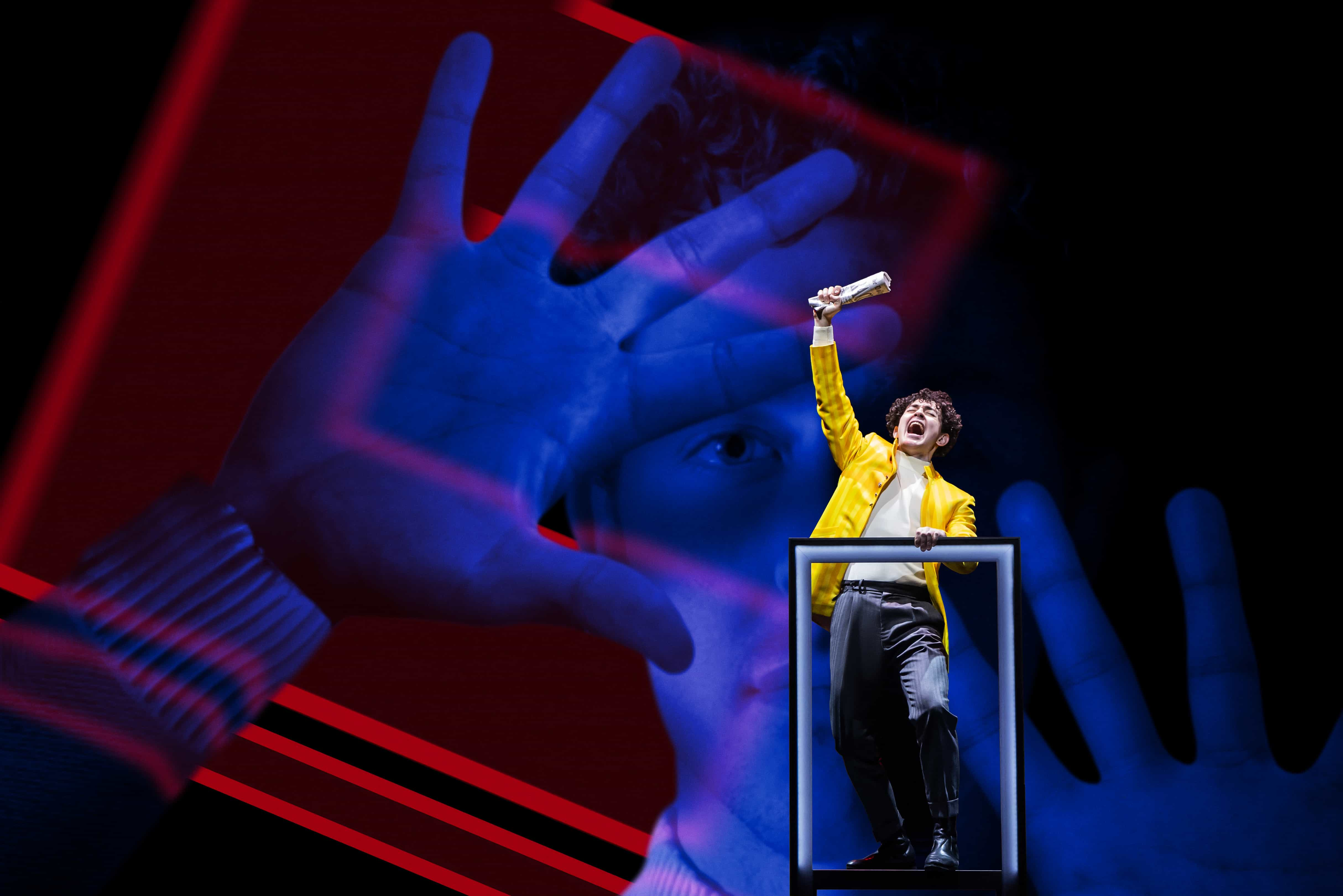Review: “Man of La Mancha” at Shakespeare Theater Company
The Shakespeare's "Man of La Mancha" is not as family-friendly as you might expect

Interpreting the musical theater version of Man of La Mancha takes some finesse.
Though most know it as the iconic tale of an elderly knight battling imaginary monsters to the tune of several enduring songs, it also wins the least-likely-to-be-seen-in-a-musical award for suggesting, in no uncertain terms, a ruthless gang-rape. It’s true: the same musical that gave the world “The Impossible Dream” also delivers a 16th century version of Big Dan’s tavern.
Aficionados of the genre will already be nodding smugly, but anyone raised solely on the family-friendly film will be mightily surprised. Put another way, you might want to think twice about bringing that niece with the ponytail and the patent-leather shoes to the musical version — at least this production by the Shakespeare Theater Company.
And that’s the point about finesse.
Only writer Dale Wasserman could have explained why he felt a gang-rape would work in his otherwise quite fanciful musical which, though it offers a bit of pathos, is largely humorous — even hokey. If perhaps it serves a certain purpose in highlighting the delusions of Don Quixote, it is one heavy-handed way of doing so.
It’s a problem that must be addressed with care or it stands to throw the entire production off balance.
Here, unfortunately, director Alan Paul does not get it right. One minute we are in a quaintly-rendered world in which Don Quixote is bouncing around on a horse fashioned from a bucket and mop and the next we are watching a woman being by turns mauled, spread-eagled, gagged and kicked. As the suspension bridge of belief collapses, the questions fall like cars: how offensive is this going to get? Will there be nudity? What does this have to do with Don Quixote? When in God’s name is this scene going to end?
Although she is rolled off-stage before the deed itself is perpetrated, it’s a long sequence that mars a production, one that would otherwise have been a charming evening of storytelling, humor, passionate song (delivered with live music), and spirited choreography.
Of course, one might argue that rape should ruin a mood. But let’s distinguish by artistic intent.
In the 1979 Italian film Traffic Jam, the viewer is lulled into the quiet comedy of an enormous tailback in which the frustrated drivers eventually get out of their cars and begin to mingle. There is a long period of humorous, satirical observation until it suddenly all goes horribly dark when a young man is knocked unconscious and his girlfriend raped. The descent from comic civility into soul-crushing barbarism is painted with careful intent. The themes are clear, the effect most powerful.
But in this dramatic context, such intensity simply does not work. If it is Paul’s intent to address issues of sexual violence (or a ham-fisted attempt to fit in with popular culture’s graphic ways), it goes against the very nature of the story and it’s largely light-hearted telling.
In this musical theater version (as opposed to the novel), the poet/actor Cervantes and his companion Sancho have been thrown into prison by the Spanish Inquisition. The other inmates are about to rob them of their possessions when Cervantes convinces them to allow him to plead his case through a performance. The prisoners agree and Cervantes, now in character, begins the story of Don Quixote, a man addled by too many books on chivalry into believing he is a knight on a mission.
As the play-within-a-play unfolds, the prisoners gleefully take on roles, raiding Cervantes’ theatrical truck for their costumes and somehow magically knowing their many lines. Don Quixote plies his delusional quest until he meets Aldonza, seeing her, not as the prostitute she is, but rather as his pinnacle of womanly honor. Just as the hard-bitten Aldonza softens toward Quixote’s chaste attentions, she is raped by the men at the inn where she works. Thus it is Wasserman’s stark illustration of the contrast between how Don Quixote sees her and the reality of her life.
But in the context of the larger, gentler and comedic whole, Wasserman’s bad idea should be scaled back into mere suggestion. And though director Paul doesn’t do this, he does deliver on the bigger picture. Carrying the title role in the spirit of the family-friendly musical is Anthony Warlow, giving his Cervantes the portent of an old-movie actor and his Don Quixote the doddery wit of a crowd-favorite. As a singer, Warlow keeps it in character, hits his notes and delivers as genre-required. As his sidekick Sancho, Nehal Joshi gets it largely right with a good feel for slapstick and comic persona.
Walking the highwire of her director’s choice is Amber Iman as Aldonza. With a captivating voice that works the lower notes with seismic depth and the higher ones with rich sweetness, she is the reason to hear this musical. Her Aldonza is a charismatic take on a familiar stock character: the take-no-prisoners African-American woman. It’s an interesting update and it allows for some contemporary comedy.
Other standouts are Rayanne Gonzales, for injecting a good dose of physical comedy and an appealing soprano, Dan Sharkey for offering an extra layer of wit to his Innkeeper, and Robert Mammana for a Dr. Carrasco pleasingly poised in voice and manner. Credit must be given to the ensemble, in particular Ceasar F. Barajas, for bringing the clever and cohesive choreography to life (if all too vividly in one instance).
So go for the charm and the music. There may be no intermission but there is, without doubt, a shocking interlude.
Man of La Mancha (![]()
![]()
![]() ) runs to April 26. Sidney Harman Hall, Harman Center for the Arts, 610 F St. NW. Call 202-547-1122 or visit shakespearetheatre.org.
) runs to April 26. Sidney Harman Hall, Harman Center for the Arts, 610 F St. NW. Call 202-547-1122 or visit shakespearetheatre.org.
Support Metro Weekly’s Journalism
These are challenging times for news organizations. And yet it’s crucial we stay active and provide vital resources and information to both our local readers and the world. So won’t you please take a moment and consider supporting Metro Weekly with a membership? For as little as $5 a month, you can help ensure Metro Weekly magazine and MetroWeekly.com remain free, viable resources as we provide the best, most diverse, culturally-resonant LGBTQ coverage in both the D.C. region and around the world. Memberships come with exclusive perks and discounts, your own personal digital delivery of each week’s magazine (and an archive), access to our Member's Lounge when it launches this fall, and exclusive members-only items like Metro Weekly Membership Mugs and Tote Bags! Check out all our membership levels here and please join us today!

























